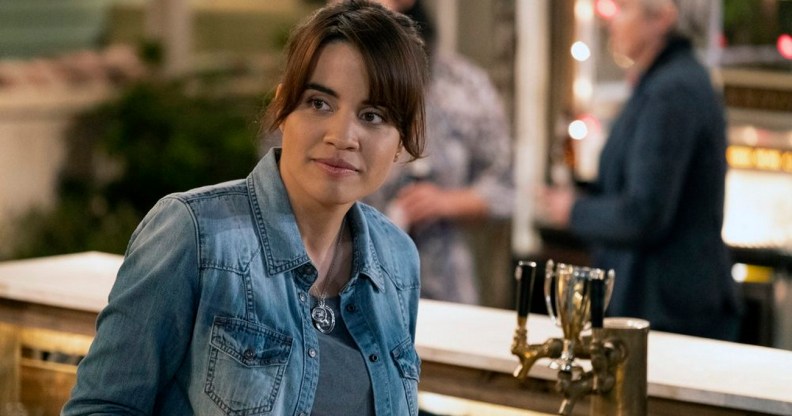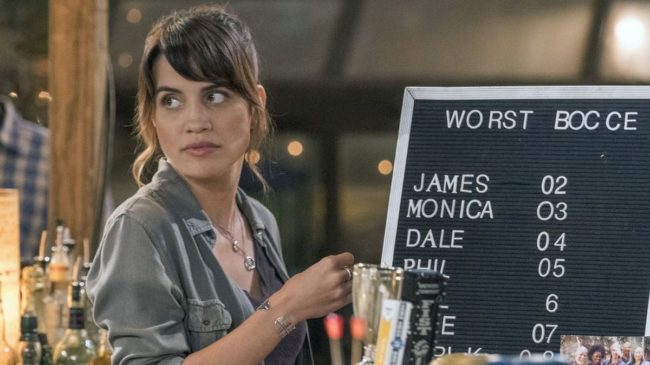Natalie Morales says playing bisexual lead on Abby’s is ‘so important’

Natalie Morales assured viewers that former Marine Abby is a well-rounded character. (NBC)
Natalie Morales has said that playing a bisexual main character on new NBC show Abby’s is “so important” to her.
The former Parks and Recreation star, who came out as queer in 2017, will play only the second-ever bisexual protagonist on a network sitcom when the programme starts on Thursday (March 28).
Speaking to Autostraddle, Morales explained how Abby, who runs a bar in her back garden, was different from other queer characters on TV.
Watch the trailer for Abby’s, which stars queer actress Natalie Morales:
“It’s so important to tell stories about marginalised people, but if we tell stories that reduce them always and only to the ways they’re marginalised, it just perpetuates the problem,” said the star.
“Abby is a bisexual woman whose friends love her, whose life is pretty normal. She dates women and men because that’s who she is, and doing so doesn’t cause her any shame or put her in any peril.”

Natalie Morales promised that Abby won’t “get killed off her own show any time soon.” (NBC)
“She’s not going to, you know, get killed off her own show any time soon,” added Morales.
The actress was seemingly referencing the “Bury Your Gays” trope, which recently reared its head on Doctor Who, Voltron: Legendary Defender and Coronation Street.
Natalie Morales assures viewers that her Abby’s character is fleshed out
The actress explained that Abby, a former Marine whose outside bar is illegal, unlicensed and seemingly very successful, is a fully realised queer protagonist.
“Sometimes a person’s sexuality is at the forefront of their life,” said Morales, who has also starred in Santa Clarita Diet and Bojack Horseman.
“I’m glad she’s bisexual and I’m glad she’s also well-rounded.”
— Abby’s star Natalie Morales
“Sometimes it’s just one of the many, many things about them—and those can be different things at different times.
“Abby is Cuban; she’s a veteran; she’s a good friend. I’m glad she’s bisexual and I’m glad she’s also well-rounded.”
Morales’ character in Abby’s works hard to create her own found family, which the actress said was a significant feature of the queer community.
“For so many people, and I think this is especially true in the LGBTQ+ community, where many of us didn’t have support from our families, and we had to go out and find our own families—and even for people who did have that support, our close friends, the people we choose to be around every day, they do become our family,” she said.
“It’s just really relatable to see that on-screen.”

